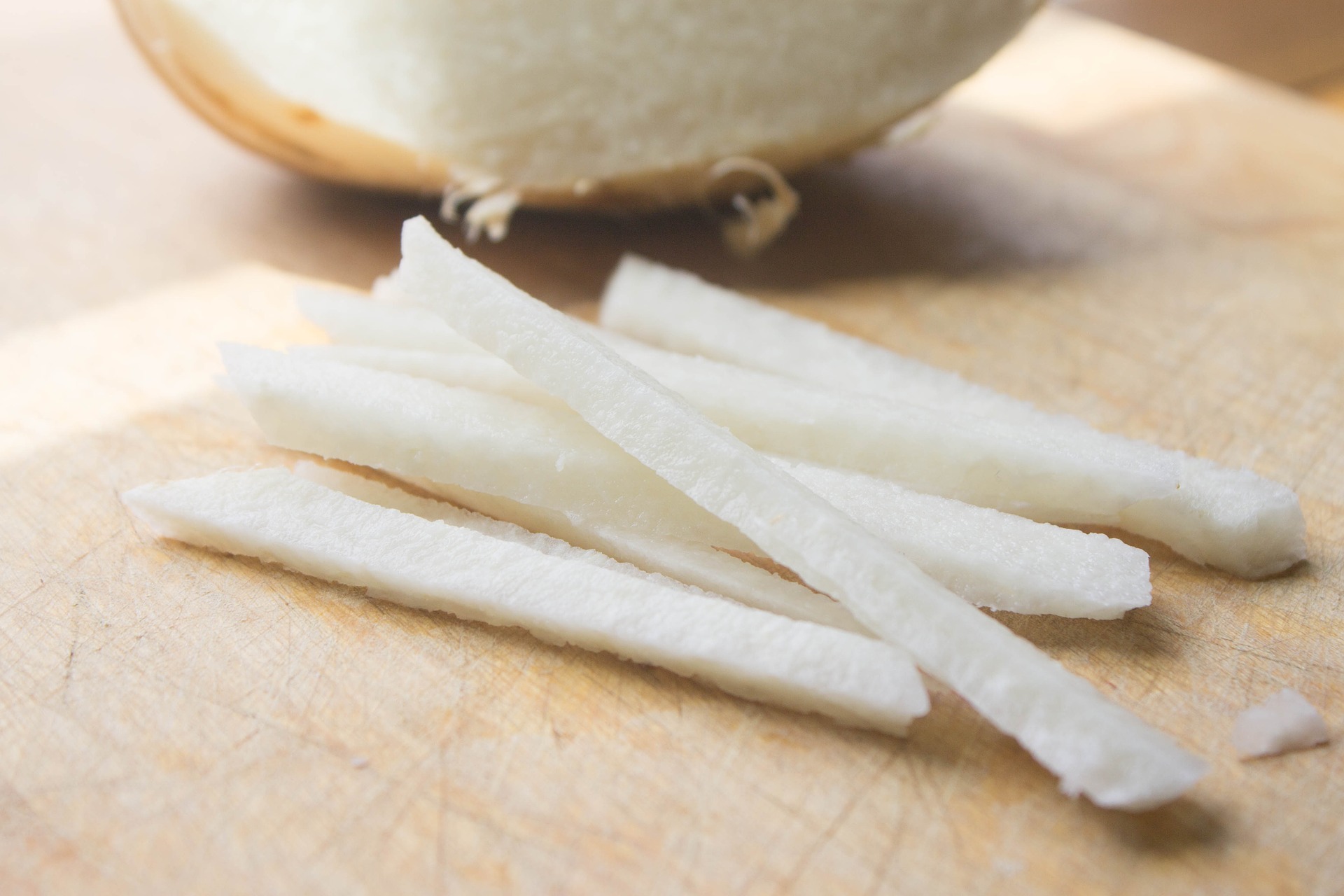
Image: udra11/shutterstock
By Sonia Ramirez-Rivera, BS, CSUN Dietetic Intern
As any doctor will tell you, taking care of your health is one of the most important things you can do in life. Eating well, exercise, and drinking plenty of water are all needed for health. What about taking of your heart? Not in an “achy breaky heart” as Billy Ray Cyrus may say when you heart is broken from you long lasting love, but in general taking care of your heart health.
Heart disease is the number one cause of death in the United States.1 Prevention is key to extending your heart health and nutritional interventions include: eating recommended serving sizes of nutrient-rich foods, eating a more plant-based diet, limiting nutrient-poor foods and getting involved with a heart healthy association.
Eating Recommended Serving Sizes of Nutrient Rich Foods
How do you know the right portions of food for your body? Recommended serving sizes can vary based on age, activity level, and other health factors. If you do not know how many calories per day your body needs, ask your doctor and/or Registered Dietitian to help you establish individualized goals. Below are general recommended eating patterns to get the recommended intake of nutrient rich foods:
Protein
8-9 servings a week 2
Includes poultry, meat, and eggs (choose lean and extra lean with skin removed)
Choose fish containing omega 3 fatty acids 2-3 times per week
Grains
6 servings a day 2
Includes bread, pasta, cereal, and rice (choose mostly whole grains that are high in fiber)
Fruit
4 servings per day 2
Includes fresh, frozen, canned and dried
Vegetables
5 servings per day 2
Includes fresh, frozen, canned and dried
Dairy
3 servings per day 2
Choose low-fat and fat-free
Nuts, Seeds, Beans and Legumes
5 servings per week 2
Fats and Oils
3 servings per day 2
Choose unsaturated, such as olive oil
Plant-Based for Heart Health
Following a plant-based diet (less animal foods and more plant foods) provides cardiovascular health benefits. According to the Journal of Trends in Cardiovascular Medicine, plant-based diets are associated with lower risk of cardiovascular diseases as well as an improved cardiovascular risk profile.3 Healthful plant-based diets can help with achieving and maintaining a healthy weight as well as reducing hypertension and inflammation, thus leading to reduced risk of heart disease.3 Adequate protein can be obtained from plant sources such as legumes, grains, and nuts. A well planned plant-based diet provides nutrient-rich foods, reduces risk of heart disease, and is a smart way to maintain a healthy heart.
No to Nutrient-Poor Foods
Nutrient-poor foods are typically high in saturated fat, trans fat, sodium, and added sugars. According the American Journal of Clinical Nutrition, high dietary sodium intake is positively related to cardiovascular disease risk, with most sodium in the US diet coming from commercially processed and restaurant foods.4 Hypertension (high blood pressure) can lead to a heart attack and possibly stroke. Limiting nutrient-poor foods would help prevent further risk of heart disease. Switching to healthier, fresher foods would be a great solution. The next time you reach for a bag of chips, try a piece of fresh fruit! This would not only provide nutrients but it would also limit your consumption of sodium.
Join a Heart Healthy Association
The American Heart Association (AHA) is focused on living a healthier life and provides recipes, healthful tips, handouts, and overall guidance to living a heart healthy life. In the “Get Involved” tab on the website you will find many volunteer opportunities, ways you can donate to the association, and even ideas on how to create your own heart disease awareness event. Try this heart healthy recipe from the AHA!
Strawberry Jicama Cucumber Salad

Image: lauryann/pixabay
Ingredients
- 2 cups strawberries (washed, hulled, chopped)
- 1 jicama (peeled, chopped)
- 1 medium cucumber (peeled, chopped)
- 1 small jalapeño, seeded, finely chopped (note: for more spice, leave the seeds and white membrane intact. For less spice, omit)
- 1 Tbsp. cilantro (finely chopped)
- 2 Tbsp. lime juice (fresh, or, from jar)
- 1 Tbsp. extra virgin olive oil
- 1 Tbsp. no-calorie sweetener (granulated, 1 1/2 packets)
- 1 tsp. poppy seeds
Directions
- In a medium bowl, combine strawberries, jicama, cucumber, jalapeno, and cilantro. Toss lightly.
- In a small bowl, whisk together lime juice, olive oil and no-calorie sweetener.
- Add lime juice mixture to strawberry mixture and toss lightly.
- Sprinkle with poppy seeds.
References
- Heart and Stroke Association Statistics. About Heart Attacks. http://www.heart.org/en/about-us/heart-and-stroke-association-statistics. Accessed November 11, 2018.
- Suggested Servings from Each Food Group. (n.d.). Retrieved November 24, 2018, from https://www.heart.org/en/healthy-living/healthy-eating/eat-smart/nutrition-basics/suggested-servings-from-each-food-group
- Satija A, Hu FB. Plant-based diets and cardiovascular health. Trends in Cardiovascular Medicine. 2018;28(7):437-441. doi:10.1016/j.tcm.2018.02.004.
- Ahuja JK, Pehrsson PR, Haytowitz DB, et al. Sodium monitoring in commercially processed and restaurant foods. Am J Clin Nutr. 2015;101(3):622-31.doi:10.3945/ajcn.114.084954.
- American Heart Association | To be a relentless force for a world of longer, healthier lives. About Heart Attacks. https://www.heart.org/. Accessed November 12, 2018.
